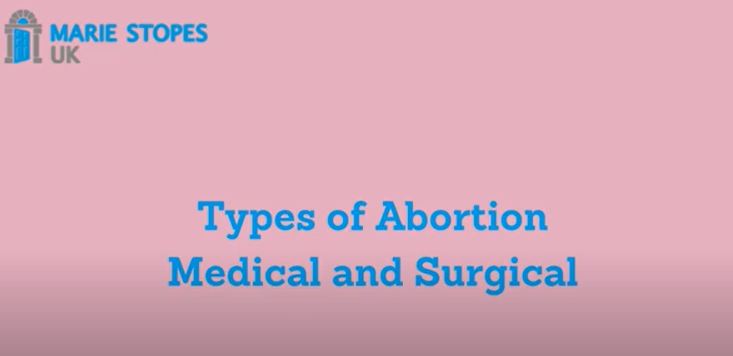
What is an abortion?
An abortion is the medical process of ending a pregnancy. There are two types of abortion: medical abortion and surgical abortion.
Abortion is a common medical procedure, and having an abortion is legal before 24 weeks of pregnancy in England, Scotland and Wales.

Abortion Services
We do not offer abortion services at our Exeter or Barnstaple clinics, but we can talk through your options with you and make a referral to the right organisation. We do offer abortions at our Torbay clinic.
If you prefer, you can contact your GP who can also help you with this process.
Abortions are available under the care of an NHS hospital or a licensed clinic and are usually free of charge with the NHS.

How can I get an abortion?
Speak to us, or your GP, and ask for a referral to an NHS abortion service at either The Royal Devon and Exeter Hospital, or North Devon District Hospital.
These services offer face to face clinics and can provide you with pills to take at home if your pregnancy is early (up to 9 weeks and 6 days) or organise for you to have surgery or a medical abortion in hospital (up to 17 weeks and 6 days).
If you are a resident in the Torbay area, you can self-refer to the Torbay Pregnancy Advisory Service (ToPAS). This is an NHS service that offers medical abortion (up to 9 weeks and 6 days) and surgical abortions in Torbay. You can access ToPAS by calling 01803 656500.
You can self-refer, free of charge, to MSI Reproductive Choices which has branches in Exeter, Paignton and Plymouth. This service offers medical abortions (up to 9 weeks and 6 days), which involves taking pills at home and surgical abortions, (up to 23 weeks and 6 days) in Bristol.
Their 24 hour advice line is 0345 300 8090. They offer an “at home abortion pills” service or a face to face service, whichever is most appropriate for you.
If you are a resident of Somerset, it is also possible to self-refer to BPAS (nearest branch is in Taunton). Services are dependent on your geographical location, and may incur a fee. To contact BPAS call 03457 30 40 30.
Help with funding can be applied through Abortion Support Network.

Contraception after abortion
It is really important to think about ongoing contraception after your abortion. You can get pregnant again straight away after your treatment.
There are lots of different options for contraception. Have a look at our contraception pages to think about what might be the right option for you.
You can discuss this at your appointment for abortion, or speak with our team.
Having an abortion will not affect your chances of becoming pregnant again and having normal pregnancies in the future.

STI testing
Some abortion services may offer sexually transmitted infection (STI) testing, however this is not always the case. If you’ve had unprotected (condom-less) sex, STI testing is really important.
Free STI testing is available from sexual health clinics, or your GP. You can make an appointment for our clinics, either by calling 0300 303 3989 or booking online.
Online self-testing options are also available. If you’re aged under 25, you may be able to order free STI testing kits to be sent to your home via freetest.me
Most STIs can be successfully treated, but it’s important to get any symptoms checked as soon as possible. to find out more, see our Testing page.

More information
For more detailed information about the types of abortion available, there is a helpful guide to abortion choices and what to expect. You can access the guide by clicking here.
Having an abortion will not affect your chances of becoming pregnant again and having normal pregnancies in the future.



